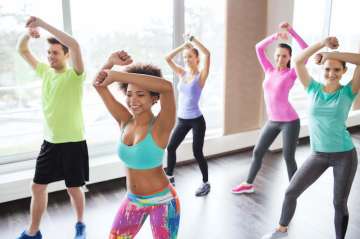A recent study has concluded that high-intensity aerobic exercise can be the best type of training for people over 65. It has the potential of reversing some cellular aspects of ageing, an Indian-origin researcher has confirmed.
The findings showed that high-intensity interval training (or cardio) like running and walking, improved muscle protein content enhancing energetic functions and causing muscle enlargement, especially in older adults.
"We encourage everyone to exercise regularly, but the take-home message for ageing adults is that supervised high-intensity training is probably best," said K. Sreekumaran Nair, Indian-origin endocrinologist at the Mayo Clinic, a non-profit health care research organisation.
Nair explained that this kind of training helped both metabolically and at the molecular level, conferring the most benefits.
Decline in mitochondrial content and function are common in older adults.
The high-intensity exercise regimen significantly enhanced the cellular machinery responsible for making new proteins, contributing to synthesis, thus reversing a major adverse effect of ageing
While high-intensity training reversed some manifestations of ageing in the body's protein function, adding resistance training may also help achieve significant muscle strength, Nair added.
In the study, appearing in the journal Cell Metabolism, the team compared high-intensity interval training, resistance training and combined training.
Researchers tracked metabolic and molecular changes in a group of young and older adults over 12 weeks, gathering data 72 hours after individuals in randomised groups completed each type of exercise.
All training types improved lean body mass and insulin sensitivity, but only high-intensity and combined training improved aerobic capacity and mitochondrial function for skeletal muscle.
Increase in muscle strength occurred only modestly with high-intensity interval training but improved with resistance training alone or when added to the aerobic training.
(With IANS Inputs)
